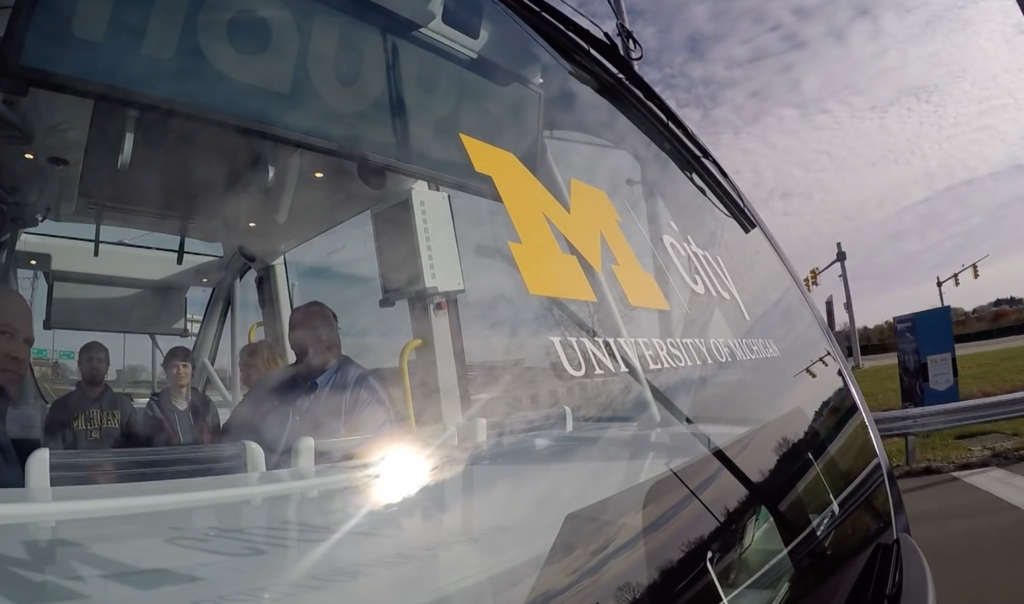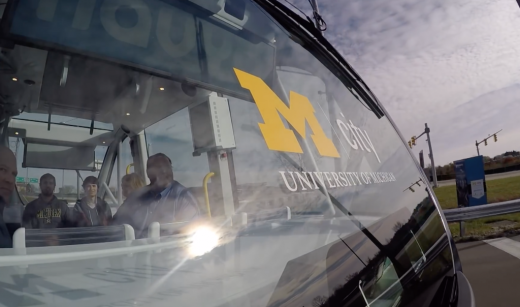University of Michigan launches its own self-driving shuttle service
University of Michigan launches its own self-driving shuttle service

The University of Michigan is trialling its own self-driving shuttle service, taking students on a two-mile trip from the North Campus Research Complex to the Lurie Engineering Center.
The Navya Arma shuttle will take 15 passengers at a time, and students ride for free. To start, the university is running two shuttles on the route, on regular business hours.
See Also: Detroit passes Silicon Valley as center for self-driving research
Michigan has become a hotbed for self-driving development, thanks to the university’s heavy investment and the state’s legalization of self-driving cars without the need for a driver inside.
Mcity, the university’s 32-acre simulated city project, will be in charge of the shuttle service.
“The Arma at Mcity supports the university’s interrelated missions of research and education,” said S. Jack Hu, U-M vice president for research. “It also underscores the importance of international collaboration as we work with companies from around the world to help society realize the substantial benefits in safety and sustainability promised by automated vehicles.”
The team in charge want to see how pedestrians and drivers react to the autonomous shuttle and will have cameras dotted all around the exterior of the vehicle. It will also be monitoring the amount of people that use the shuttle service, to see if it as popular as other transport services for students.
The university is not the only actor in the self-driving scene in Michigan, General Motors, Ford, Honda, and Uber have all started tests in the state. A 311-acre test site being built on an old Ford WW2 bomber factory, is set to become the largest private environment for automakers to test self-driving systems.
The post University of Michigan launches its own self-driving shuttle service appeared first on ReadWrite.
(40)













